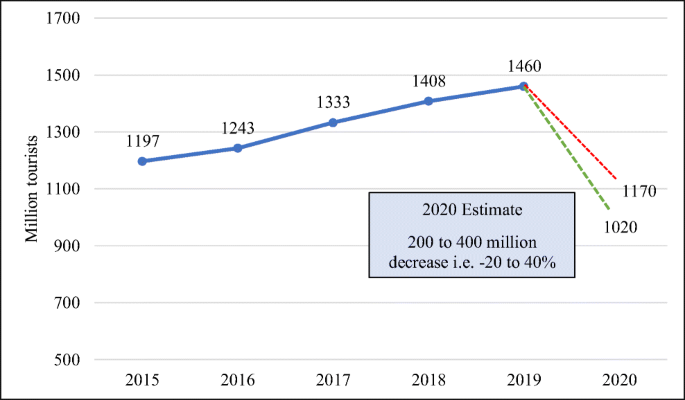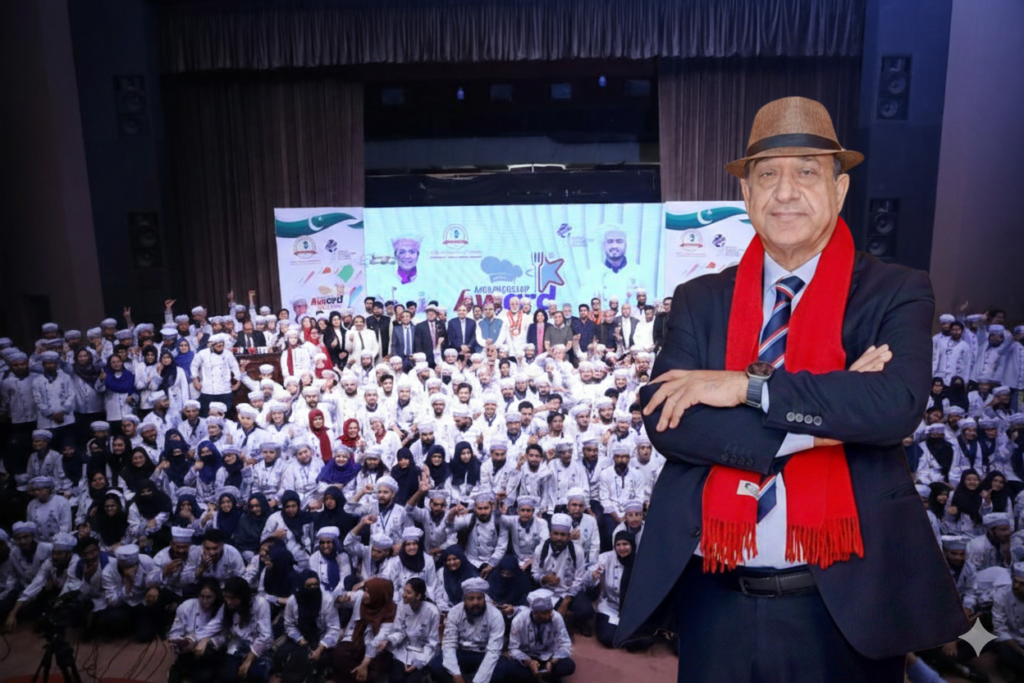Aftab Rana
Global community has not faced a crisis of this scale since the World War II. Like all other sectors of global economy, the current crisis due to pandemic of Coronavirus has badly hit the tourism and hospitality industry around the globe. According to World Travel and Tourism Council (WTTC), which represents the international tourism industry, travel and tourism contributed $8.8 trillion to the global economy in 2018 and was responsible for 10.4 percent of all global GDP. The council estimates that travel and tourism are responsible for 319 million jobs around the world.
Analysis from WTTC shows the stark economic impact of coronavirus crisis on the travel and tourism sector. A staggering one million jobs a day are being lost due to the current pandemic. Latest research shows that up to 75 million jobs are at immediate risk, which may cause a loss of US$ 2.1 trillion to the global economy in 2020. Asia pacific region faces the greatest threat with 48.7 million jobs at risk. UNWTO has predicted that there will be around 30% decrease in the international arrivals at global level with fear to even more worsening conditions if the pandemic of Coronavirus continue for a bit longer time.
The global spread of the coronavirus has devastated the tourism industry around the global, especially a country like Pakistan which was very much optimistic to have an overwhelming tourist season in the year 2020 due to improved image of the country as a tourism destination in international media and relaxations of negative travel advisories from the number of countries on travel to Pakistan.
According to Pakistan Association of Tour Operators, hundreds of group tours have already been cancelled and many more will be cancelled in coming days. Many of the tour operators who were hoping for good business in the tourist season this year have become non-operational, hotels in cities and especially small hotels in mountain areas have been closed and rent a car companies are also facing very hard time. Airlines business is stand still. The worst effected segment is the low income workers such as drivers, tour guides, hotels & restaurant staff, porters and helpers in hospitality and tourism industry. Many micro and small businesses at tourist sports have also been affected adversely due to this crisis. The economic fallout of current pandemic will increase the risk of instability in the tourism sector especially at grassroots level in mountain areas of Pakistan where many people employed in tourism and hospitality sector will become jobless.
More than 75,000 direct Jobs will be at risk in tourism and hospitality sector due to this crisis in the region of Gilgit-Baltistan, Khyber Pakhtunkhwa and Azad Kashmir where most of the prime areas for summer tourism are located. This will ultimately deprive the tourism sector labour force losses of around Rs.3 billion in the salaried income every month.
After the improved law and order conditions and positive image of Pakistan as tourist destination Pakistan created by international media, the tourism industry was hoping to earn US$1.5 billion from foreign tourism this year. But now there is fear that we may not be even able to ear half of it if the impact of current pandemic continue for a longer period of time. Pakistan Hotel Association has reported losses of sales revenue of over Rs.100 million just in the month February.
Air travel segment which is managed by around 1700 IATA approved travel agents in Pakistan is the immediate victim of this crisis as the abrupt travel restrictions cause closure of almost all airports and cancellation of hundreds and thousands of domestic and international air tickets. Their businesses are run through guarantees/Insurance security bonds and making payments to IATA for airlines on fortnightly basis. They are now unable to clear the liability due to liquidity crunch and facing imminent default of IATA.
This crisis is not simple as it will have far-reaching impacts on this important sector of national economy. It needs well-coordinated and serious efforts by the federal and provincial governments and by the private sector stakeholders. In order to effectively meet this challenge of this crisis, there is now an urgent need to establish a National Tourism Recovery Task Force at federal level and similar tourism recovery task forces at provincial levels to devise relief and recovery strategies for tourism and hospitality sectors. It is now time to work collaboratively and in a synchronized manner to achieve some tangible results. This can be done by adopting a three-tier approach to counter the impact of COIVID-19.
Firstly, there is need to provide immediate relief by the government to the industry works such as staff of travel agencies, tour operations, hotels/restaurants and self-employed individuals such as tour guides, jeep drivers and porters etc. who do not have any means of income due to absence of tourist activities. Secondly, there is an urgent need to aid tourism and hospitality businesses facing cash flow problems, by providing them incentives of tax rebates, interest free loans and grants by the government to keep them afloat and avoid liquidations. Thirdly, we need to focus on developing a recovery plan jointly by the public and private sectors to stimulate tourism industry and ensure that the sector is able to sustain the shock and bounces back as soon as possible. To spearhead a strong and coordinated response, National Tourism Coordination Board immediately form the National Tourist Recovery Task Force with a mandate to provide guidance to tourism sector stakeholders to work collaboratively to face the challenge of Coronavirus and to lead the tourism sector recovery efforts.
Moreover, as a result of Coronavirus crisis, there will be a major change in the mind-set of visitors about the health and hygiene standards. Tourists will be more conscious to know about the hygiene and sanitation standards of hotel rooms where they will be staying, quality of cleanliness of restaurants where they will be eating, condition of transport on which they will be traveling, sanitation and cleanliness of places which they will be visiting. As we know that as whole, Pakistan’s tourism and hospitality sector is quite weak in health and hygiene standards. So it is the right time to prepare ourselves on these aspects in this time of break and improve the overall standards of our services as per international recognized standards of quality assurance.
Aftab Rana is a Tourism Development Specialist. He is President of Sustainable Tourism Foundation Pakistan and Vice President of Adventure Foundation Pakistan. He is also member of National Tourism Coordination Board, member of Board of Directors of PTDC and a Fellow of Leadership for Environment and Development. He can be contacted at stfpak@gmail.com










